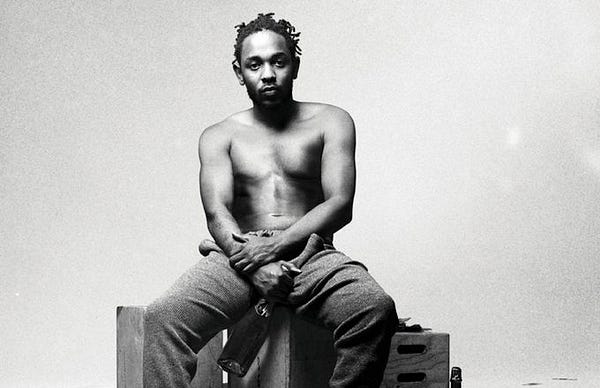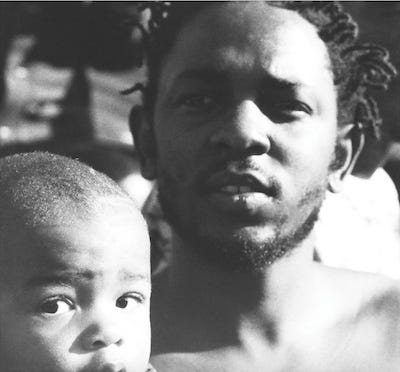Have you ever been uncomfortable? I was uncomfortable a year ago on this day when I discovered an early release of To Pimp A Butterfly a few days before its initial date. The suggestion of a follow-up album even slightly comparable to Good Kid, M.a.a.D. City made me sweat.
Great albums from great artists will do this. They will make you sweat. They will make you anxious and apprehensive. They will have you dreaming about specific lines and reciting them in your sleep.
And when you recognize that the existential significance of their work moves beyond catering to the needs of the individual and instead exists for the greater welfare of human kind, you begin to dream about making it a point to play these records for your children and grandchildren, decades and decades down the generational line.
I played the first record in my car and, kid you not, I hit the power button after it finished. I was already disturbed. Borderline angry. I just knew my speakers were about to blow: catching fire from the flame on the lyrical grenade about to burst through them. I was tense, hesitant and all but apprehensive about digesting such a complex body of work. I just wasn’t ready.

A few days later I was in a car headed to Austin for SXSW. I was with a friend and we agreed to listen together. Ears: erect. Brains: vulnerable and unguarded.
Our subsequent conversation about the basic fundamentals of the album was not like your typical immediate review upon listening to a new rap record with friends — Oh I like that beat!, That bar was tight., Damn did you hear what he said?!— save for the natural delight sparked by the brilliant instrumentation or the extremely clever sampling. I realized that the appropriate conversation about a body of work so enticing could not just be about the rudimentary elements on the surface.

What really needed to be discussed was the way this album — in its entirety — functioned like a complete body of brutally candid information. And for this, it rightfully deserves a type of immediate reciprocity: an undying gratitude for the graceful method in which it was delivered.
This album is a gift: a quintessential expression of a repressed truth that has, for centuries, begged for an earnest voice to serve as the medium responsible for pulling it out to the light.
It’s a gift for present-day white America (whether they know it or not): the generational offspring of a post Civil Rights era who still think and believe as the majority of their predecessors did.
It’s a gift for black America: a respectful ode recognizing, on a global scale, the reality of black life.
It’s a supreme object of stimulating candor to further compliment the worthy artifacts that already exist in the Hip-Hop time capsule.
I thought about mustering up some retrospective account of the album’s political and moral significance in the past year alone. I thought about an in-depth review after about a year of reflection because I’ve now convinced myself that I’ve had ample time to fully assimilate and dissect the body of such a morally complex piece of work.
Hell I even thought about (and tried) writing a review at the time of its release. But I knew that 72 hours — which is probably the max time allotted for writing up reviews on trending music — would not suffice for something like this.
All of that can be left to writers who specialize in picking apart these kinds of things.
I digress.
So this piece isn’t really so much a review of the album as it is the late aftermath of heartburn suffered from indigestion because this was too damn much to swallow at one time.
What I’d like to do today is simply say thank you, Kendrick.

Specifically for a few personal favorites…
Thank you for Wesley’s Theory: a paradoxical protest against a twisted industry hung up on the thrill of monetary profit gained from spared talent.
(Furthermore, despite knowing this, the talent still pursues their innate interests; not only for the love of the craft, but for the obligation to fulfill an artistic calling.)
Thank you for King Kunta: a where-were-you-when-I-was-shooting-in-the- gym open call-out to any inglorious, ungrateful bastard who wants to profit from the success on my name after I’ve done my ground work and scrubbed my share of floors, while you laughed in my face. Now I’m laughing in yours… while I eat my yams.
Thank you for U: a candid and brutally honest magnification of self-doubt, suggesting the experience (and possibility) of self-destruction as the result of internal conflict, furthermore using these elements to rectify a battle with the self.
Thank you for Alright: most simply, the virtual birth of a new black anthem; a new cornerstone for hope and change in the black community.
Thank you for Momma: a humble ode and extremely modest deviation from the ego of the self.
Thank you for The Blacker The Berry: the quintessential protest record, paradoxically juxtaposed against the hypocritical battle with internal conflict.
Thank you for You Ain’t Gotta Lie: A decent moral check on the importance of authenticity.
Thank you for i: the openly self-accepting yet borderline self-aggrandizing — but rightfully justified — claim to love yourself: thoroughly, uncensored, and raw.
Oh yeah, thank you for this:
Thank you for this:
And so help me God, thank you for this:
Happy Birthday T.P.A.B.














